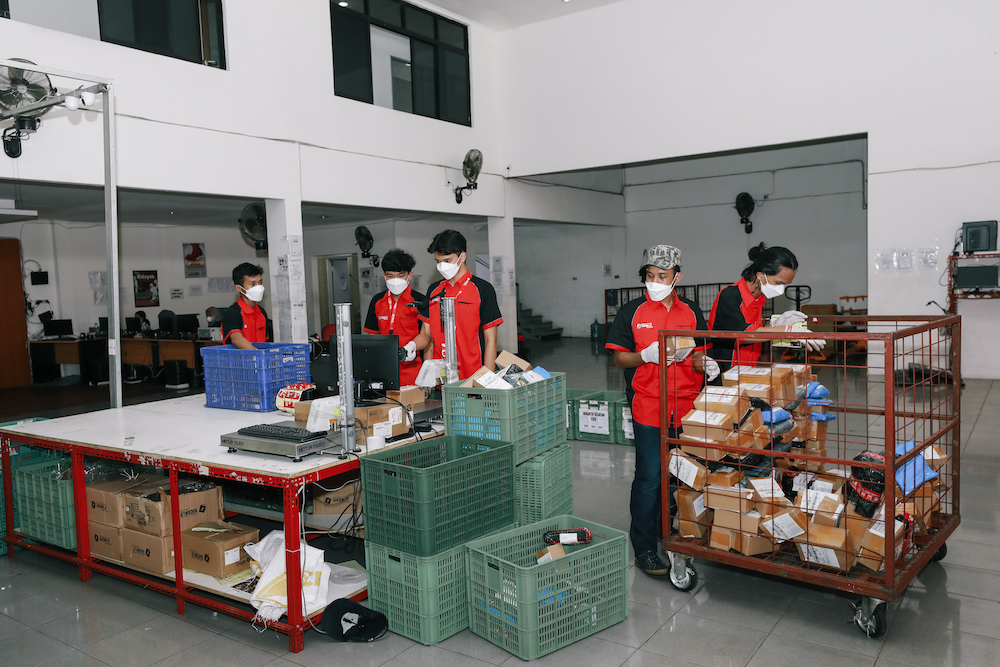From Last-Mile Delivery to EV Mobility, SiCepat is Building a New Logistics Ecosystem in Indonesia
SiCepat recently entered the EV industry by forming a joint venture with NFC Indonesia. This JV has acquired an electric motorcycle manufacturer based in Central Java.
As e-commerce develops in Indonesia, so does its logistics ecosystem and supply chain—the self-developed J&T Express, for example, has reached USD7,8 billion valuation in April, while other local logistics startups are vying to become the next billion-dollar company.
Jakarta-based SiCepat is one of the companies that has the potential to become a unicorn. The company raised a USD 170 million Series B round in March, followed by investors such as Telkom Indonesia's investment arm, MDI Ventures, subsidiary Temasek Holdings, Pavilion Capital and Falcon House Partners. Tokopedia which recently joined Gojek also reportedly invested in SiCepat's parent company, Onstar, last year.
Founded in 2014 by Indonesian entrepreneur The Kim Hai, SiCepat began expanding aggressively in 2018 after launching SiCepat Ekspres, its long-distance delivery subsidiary. SiCepat also operates in other sectors with six separate divisions. This includes e-commerce fulfillment and HaiStar warehouse management unit, e-commerce enablers Hera, website management SaaS platform, Clodeo, and air freight cargo service, CKL. At the same time, through a joint venture with registered IT company M Cash Integration, SiCepat manages two other divisions—logistics solution provider Logitek Digital Nusantara, and food ordering solution Digiresto.
“We provide end-to-end solutions for online sellers, especially micro, small and medium enterprises (MSMEs). From helping them set up online stores, including websites and marketplaces, to operations through fulfillment and delivery to end customers,” SiCepat Ekspress chief commercial officer Imam Sedayu told KrASIA.
The company claims to have achieved profit, with revenue growth of nearly 300% from 2020 to 2021, as the pandemic accelerates the adoption of online shopping, Imam said. SiCepat Ekspres—which currently delivers around 1,2 million shipments daily—is the company's main source of revenue, followed by HaiStar and CKL Kargo, Imam said.
“Our valuation is growing, but being a unicorn is not our priority. Instead, our focus is on ensuring that SiCepat can grow sustainably with a healthy and profitable business,” he added.
 SiCepat manages 12 fulfillment centers in major cities in Indonesia. Documentation by SiCepat
SiCepat manages 12 fulfillment centers in major cities in Indonesia. Documentation by SiCepatPresence in different verticals
With seven subsidiaries, SiCepat aims to build a comprehensive logistics ecosystem to make a “real impact on the industry,” said Imam. SiCepat Group currently has 50.000 employees across all business units, including delivery couriers. The company works with more than 6 million partners ranging from e-commerce platforms to individual sellers, while it operates a network of 6.600 drop points and 12 fulfillment centers across Indonesia.
Imam said the company puts technology at the core of its business strategy, allowing SiCepat to automate different logistics processes, helping them achieve a "on-time delivery rate of around 98%," he said.
In the midst of a difficult moment for the courier and delivery service industry in Indonesia, with courier partners Gojek GoKilat, Grab, and Lalamove on strike to demand a better compensation package, Imam explained that his company from the start chose to legally employ all of its partners.
“Our business model is different from other platforms that use a partnership system where they pay drivers based on the number of orders. In this business, we are all focused on reducing costs and increasing productivity. Maybe that's why the platform is cutting driver fees to save costs. However, we believe that we can increase productivity by providing drivers with financial security and systems that make it easier for them to work,” he explained.
To overcome the high cost of some logistics services in remote areas, SiCepat collaborates with other industry players such as e-commerce companies, government agencies, and other third-party logistics (3PL) providers.
“The integration of our own ecosystem with other companies allows customers to have more choices of seamless and affordable logistics services. For example, for shipping outside Java, customers can choose premium services using CKL air freight, or regular services by land and sea from SiCepat and 3PL partners," said Imam.
Future plans with EV
SiCepat has also recently entered the electric vehicle (EV) industry by forming another joint venture called Always New Energy (ESB) with NFC Indonesia, a subsidiary of M Cash Integration. In June, ESB acquired Volta, an electric motorcycle manufacturer based in the city of Semarang, Central Java.
“For starters, we will equip 5.000 courier drivers with electric motorcycles. We will also establish a distribution network for electric motorcycles and battery exchange services by leveraging our logistical capabilities,” said Imam.
The JV is expected to be able to enter a larger market outside the SiCepat ecosystem, said Imam. “Through ESB, we hope to contribute to reducing pollution and building a green economy ecosystem where we can provide benefits to industry and society at the same time.”
The company is currently in discussions with several companies and government agencies to offer its EV services, Imam said. “Many companies, including state-owned enterprises, are leveraging EVs to develop infrastructure and explore opportunities in this sector. I think we will see significant progress in EV adoption in the next five years.”
Going forward, SiCepat will continue to focus on optimizing its technological capabilities and developing its ecosystem infrastructure. Imam also mentioned his intention to expand throughout the region, though did not reveal details.
“Our target this year is to build more pick-up points to reach remote areas in Indonesia, including Kalimantan and Sulawesi, to make it easier for MSMEs to enter online businesses. Regarding expansion, we are still studying which market is suitable for our business, but for now we are still focusing on the local market,” said Imam.
-This article was first released by KRASIA. Re-released in Indonesian as part of the collaboration with DailySocial
Sign up for our
newsletter
